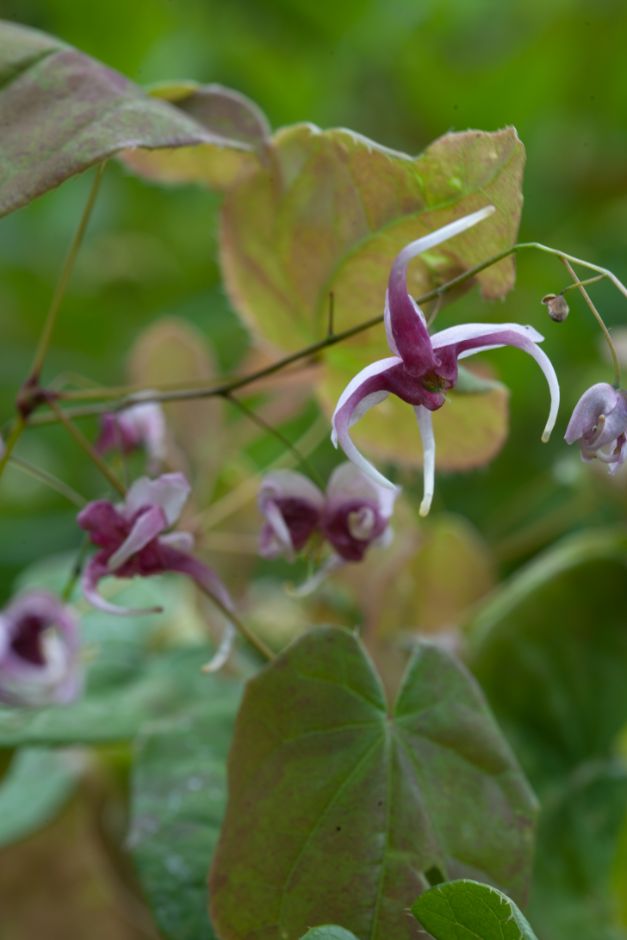Epimedium 'William Stearn'
barrenwort 'William Stearn'
A clump-forming rhizomatous perennial 18-30cm high, with evergreen leaves divided into heart-shaped leaflets which emerge mottled and splashed with dark red and mature to green, and very dark red flowers with pale pink spurs tipped with yellow, in spring; Epimedium leaves may be used for their nests by leaf-cutting bees

Buy this plant
Size
Ultimate height
0.1–0.5 metresTime to ultimate height
2–5 yearsUltimate spread
0.1–0.5 metresGrowing conditions
Moisture
Moist but well–drainedpH
Acid, Alkaline, NeutralColour & scent
| Stem | Flower | Foliage | Fruit | |
| Spring | Red Pink | Red Green | ||
|---|---|---|---|---|
| Summer | Green | |||
| Autumn | Green | |||
| Winter | Green |
Position
- Partial shade
Aspect
North–facing or South–facing or West–facing or East–facing
Exposure
Sheltered Hardiness
H6Botanical details
- Family
- Berberidaceae
- Native to GB / Ireland
- No
- Foliage
- Evergreen
- Habit
- Clump forming
- Genus
Epimedium are rhizomatous perennials with evergreen or deciduous, ternately or pinnately divided leaves, and open sprays of small, bowl-shaped flowers, often with prominent spurs, in mid to late spring
- Name status
Accepted
How to grow
Cultivation
Grow in fertile, humus-rich, moist but well-drained soil in partial shade, with shelter from cold, drying winds; where frosts are prolonged or severe, spread an organic mulch such as leaf mould or composted bark to protect plants over winter
Propagation
Propagate by division in autumn or after flowering; or by root cuttings of rhizomes, kept under glass in winter, and planted out after all danger of frost has passed
Suggested planting locations and garden types
- Cottage and informal garden
- City and courtyard gardens
- Low Maintenance
- Banks and slopes
- Flower borders and beds
- Ground cover
- Garden edging
- Underplanting of roses and shrubs
Pruning
No pruning required, but cutting back in late winter or early spring, before flower spikes form, will improve appearance
Pests
May be susceptible to vine weevil
Diseases
May be susceptible to mosaic virus diseases and fungal leaf spots
Love gardening
Sign up to receive regular gardening tips, inspiration, offers and more
View our Privacy Policy
Get involved
The Royal Horticultural Society is the UK’s leading gardening charity. We aim to enrich everyone’s life through plants, and make the UK a greener and more beautiful place.